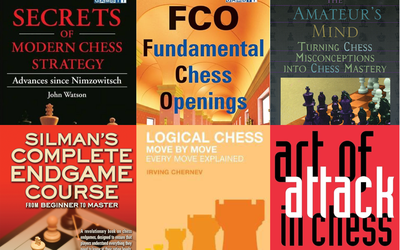
Greek gifts, forfeits and the City of Dublin
How I went from almost bottom seed to 2nd placeIn 2021, I took part in the City of Dublin tournament as a lowly 760 only beginning his journey in competitive over-the-board chess. Two years later, the tournament returned and 500 points stronger, so did I. Oddly, the tournament had only half the number of participants it did last time, making it an exception on the chess scene in Ireland where most tournaments are experiencing record levels of participants. Unlike last time, I was in the Major section, where I was seeded 18th out of 21 players, a position I was happy to be in as it meant the only way was up.
I'm going to try experimenting with annotating the moves and drawing lines in my analysis as well as providing an overall summary, let me know which method you find most informative.
No time to smoke
My first game opened with an Advanced Caro-Kahn and I gradually traded off the pieces defending his King. The time seemed right, so I pushed f4 and launched a Kingside attack. Unfortunately, it seemed my attack was premature and I lacked enough firepower. My opponent held off my attack and gradually the tables turned, my pieces were tied down defending, while his attackers got closer and closer to my King.
I was soon blocked in with no counterplay and danger all around my King. But then my opponent overextended himself on move 34 by pushing his pawn to g5. Not only did this greatly weaken his King's defences but it gave me enough breathing space to launch a counterattack. Now my Queen could break through and give checks with the possibility of at least a perpetual or at best winning material.
When the dust settled, I was up a pawn that had a clear path to promotion. But before I could start pushing, I had to remove the danger of his Queen. What followed next was a dance across the board as I blocked his attacks and tried to trade Queens, while he tried to keep attacking. Baring one blunder that would have cost me the game had my opponent noticed, I succeeded in blocking Black's plans.
One advantage I had was a massive lead in time. By this time, my opponent was down to 20 minutes while I still had over an hour left. Then my opponent made a crucial blunder - he went for a smoke break. Smoking isn't wise under any circumstances, but especially not when you have only 20 minutes left on the clock. This ended up costing him the game, as although the analysis says White's advantage is less than it seemed to me at the time, Black didn't have time to form the best plan. In the end, his clock hit zero and I won.
If he won't attack - then I will
I went into the next game with the simple plan of aiming for a draw. I was Black against an opponent 250 point higher rated than me, so I felt it was up to him to force a victory. This was confirmed when on 5, my opponent played f4, launching the Yugolsav Attack against my Sicilian Dragon.
To my surprise, the attack didn't come. Instead White continued to slowly develop with moves like e3 and even castled Kingside. My plan was to hold tight and defend, and while I waited I was happy to rotate my Knight to the Queenside while he used more and more of his time trying to figure out how to break through.
On move 16, White made a crucial move and pushed the pawn to g6, leaving his King exposed. This made my reconsider my plan of just shuffling my Queen and playing for a draw. The h1-a8 diagonal was now very weak and if I got my Bishop here it could be devastating.
Move 21 felt like a turning point. I sacrificed a pawn to improve my position and open up his defences - the kind of thing they talk about in chess books. I calculated that I could win the pawn back and also launch a strong attack. Sure enough, two moves later I won back the pawn and another too. I didn't like having to trade off my Bishop and my dreams of skewing the Rook, but chess plan always have to adapt to the situation.
Now I had a passed pawn, so my plan was simple, push it and draw all of White's focus to it. Finally, White tried to push his pawns on the Kingside, but it was too late, he didn't have enough firepower because he needed to block my pawn. White opened the h-file which looked dangerous, but my Queen controlled the key squares preventing an attack. My Rook joined the effort and I gradually picked up pawns as I prevented White's attack.
White tried to bring more attackers, but that left less defenders against my passed pawn. By focusing only on the attack, my opponent couldn't block my pawn from promoting yet didn't have enough time to strike at my King. As his time ticked down to only 3 minutes, my opponent almost had a mating attack, but with two Queens against a defenceless Rook, I delivered checkmate.
Beware of Greeks bearing gifts
After beating two players much higher rated than me, I decided I'd play it safe as I faced an opponent who out-rated me by 300 points. The game opened with an Alapin Sicilian which transposed into an Advanced Caro-Kahn and I ended up with a nice pawn chain in the centre and the Bishop pair. When my opponent castled on move 10, I instantly did the same. It was only after I made the move that examined the position and something struck me . . . was there a tactic in this position?
As I began to calculate, I realised that I had the potential for a Greek Gift, where the Bishop is sacrificed on h7 but the follow up attack of Knight to g5 and then Queen to h5 is devastating. But the funny thing is, although I've studied the concept, I've never actually played a Greek Gift in a game - not even online. So although I knew how to begin the attack, I wasn't sure if I would be able to land the killing blow. But I knew I wouldn't get a chance as good as this again, so I decided to go for it.
The first sign that I had made the right choice was the fact that my opponent took over half an hour to make their next move and even longer on the following move. I began to wonder if the game would be finished in the next 2-3 moves. However, my opponent defended well and I made mistakes in my attack. Had I moved my Queen to f3 instead of g4, I would have had two lines of attack, f6 and the h-file, instead of focusing solely on the h-file which got blocked off.
On move 16, I made what I thought was a brilliant game winning move that would lead to checkmate - only to realise that the King had one escape square, so I just blundered my Knight.
My attack was running out of steam and on move 18 the analysis says my advantage has disappeared and the game is even. However, I had the major advantage of time. The shock of falling victim to a Greek Gift meant my opponent burnt almost all their time and had only 20 minutes, whereas I had over an hour. My opponent would have to be careful to survive, but he didn't have the time to calculate the most precise lines. Furthermore, even though I was limited in how I could attack, my opponent was even more limited in their options. Almost all his pieces are blocked in or tied down in defence, there's little he could do.
My Queen was still a threat and his King was still exposed so I pushed and was able to win an exchange, leaving me with a slight material advantage. I slowly began to bring my Rooks into the game and began to use my pawns to break open the files, which would expose his King and Queen to all sorts of dangers. He tried to counter-attack on move 22, but this only resulted in me winning an exchange.
I pinned his Knight to his Queen and pushed my pawns, guaranteed to win some material. With only a minute on the clock, there was no way to find a way to save the situation and my opponent resigned. With a score of 3/3, I was now in 1st place of a tournament that I started in almost bottom place.
Total knightmare
I'll be honest, playing three over-the-board games in a single day left me exhausted which might be why I made some odd moves in this game. For some reason I decided to crack the centre open with a c6-d4 push instead of just some slow, solid play. I succeeded in getting two centre pawns, but I struggled to defend them. I should have just slowed down and played some quiet moves, but instead I went on the attack and traded off a Bishop and a Knight for a Rook and pawn. This worked out better than I expected and I won two pawns, when my opponent surprised me by offering a Queen a trade on move 16.
The position felt pretty even but I had the advantage of two pawns in the centre. If I could play f4 and start rolling the pawns, it would be very difficult for White to stop me without sacrificing material. However, instead of preparing this push or building my defences with f3, I played some poor moves and let White take the initiative.
First I blundered the e5 pawn on move 24, which then left f6 vulnerable. Pushing the pawn would immediately lead to checkmate but I didn't want to have my Rook tied down defending the pawn. So I made another blunder by pushing g6 which not only lost a pawn but almost left my King very vulnerable. My opponent used the pair of Knights to dance all over me and left me paralysed.
I had no choice but to run my King (mate in one is threatened on move 30) and hoped I could get some counterplay by bringing my Rooks to the 1st and 2nd rank (I could even have some mate threats of my own). Move 33 was a crucial position because I could either move my King to h3 and block in White's King (but risk getting blocked in myself). Or keep the King active (but exposed) by going to f3 potentially winning the d3 pawn and promoting my d4 pawn.
Unfortunately, I made the wrong choice and missed out on my chance to draw the game. The White King was able to hide on h3 and the White Knights never gave me a moment of piece, eventually winning my Rook with a fork on move 39. I did get a passed pawn, but White could just sacrifice their Knight for it and still have a lead in material. I tried to fight on, but it was lost. My opponent went on to win the event.
No show
I got up at 7am on Sunday morning and got a bus for an hour and half to the tournament, as I unfortunately live in the complete opposite side of Dublin to the venue. I got a cup of tea and sat down for the game, but then . . . nothing. I sat there for an hour but my opponent never showed up. The arbiter was confused because the player lives nearby and didn't notify them that he would be late. I was deeply frustrated because why I had gone to all the effort of traveling across the city so early, when I could have just stayed in bed? Worse still, I had nothing to do but go for a walk and wait three and a half hours until the next round.
My opponent did show up for the final round, but didn't seem too bothered about missing our game. He said simply that he thought the 9:30 round was starting at 11. Although the forfeit left me on 4/5 with a guaranteed chance of winning a prize, this didn't satisfy me, because I felt I hadn't earned it. I signed up for the tournament to play chess, not to win prizes by default. It also annoyed me that my opponent faced no punishment for skipping the game, in fact he ended up coming joint 2nd.
Perhaps this is controversial, but I believe that if you waste hours of someone's time, there should be a stronger punishment. I understand the logic that because I didn't beat me in a game, I can't say I'm a better player, therefore I didn't gain any Elo from the forfeit. However, I think this rule should be changed and players should lose Elo so that there are repercussions for forfeiting and a strong disincentive against doing so.
An old rival re-emerges
At the last City of Dublin, as a 760 I played a 725 rated player and was frustrated that I lost despite having a strong advantage in the opening. Now, two years later, we faced off again, having both come a long way since then. Funnily enough, I played the Ponziani just as the last time we met and secured two centre pawns. I started pushing them, determined to force his Knight back onto a less active square and planning for potential pins and skewers.
To my surprise, he moved the Knight forward where he seemed to lose a piece. However, I then realised that Black was threatening my Rook. It seemed I was forced to take the Bishop on g4 but I completely missed that I could avoid all danger by just bringing my Bishop to e3. However, trading a Rook for a Bishop didn't seem like the worst plan in this position because my Bishops would have clear open lines pointing directly at Black's King. All I needed was a little time to organise an attack and then I could be winning.
Unfortunately, my opponent made the same calculation and immediately worked to trade off Queens and then my Bishop. If they had given me a turn or two extra, I could have been winning, but they quickly forced a trade. On move 26, I had a chance to at least equalise the game by attacking the Rook and leaving it unable to defend the Knight, but I didn't see it until after the game.
It wasn't over yet and I hoped to build a wall he couldn't penetrate and block off any advance. Rook v Bishop endgames aren't easy, but my opponent found a way into my defences and hollowed them out. I tried to fight on but my only hope was to someone trick my opponent in giving stalemate. I almost succeeded, by hiding my King into a corner and shoving a pawn behind it, but unfortunately I forgot that Black's pawn was undefended.
Conclusion
Something interesting I noticed was that the age of my opponent was almost as great a determination of the result as their rating. My first two opponents were in their 60s whereas my final two were teenagers. This shouldn't be too surprising as young players are still developing and haven't reached their full potential, whereas older players may have peaked years earlier.
Although it ended in defeat, I still had an amazing tournament. Thanks to the forfeit, I ended up winning 2nd place (jointly with 4 other people) and a prize of €60. It was one of my best tournaments ever, with a performance of 1540, I gained 83 rating points, taking me to 1318 ICU (the tournament was not FIDE rated).

More blog posts by TeoKajLibroj

Irish Chess Union gives massive rating boost to Irish chess players
How I gained 400 points without playing a game
6 chess books I tried to read
And which ones I would recommend
Has the chess boom reached OTB tournaments?
Have Irish tournaments experienced the chess boom?
